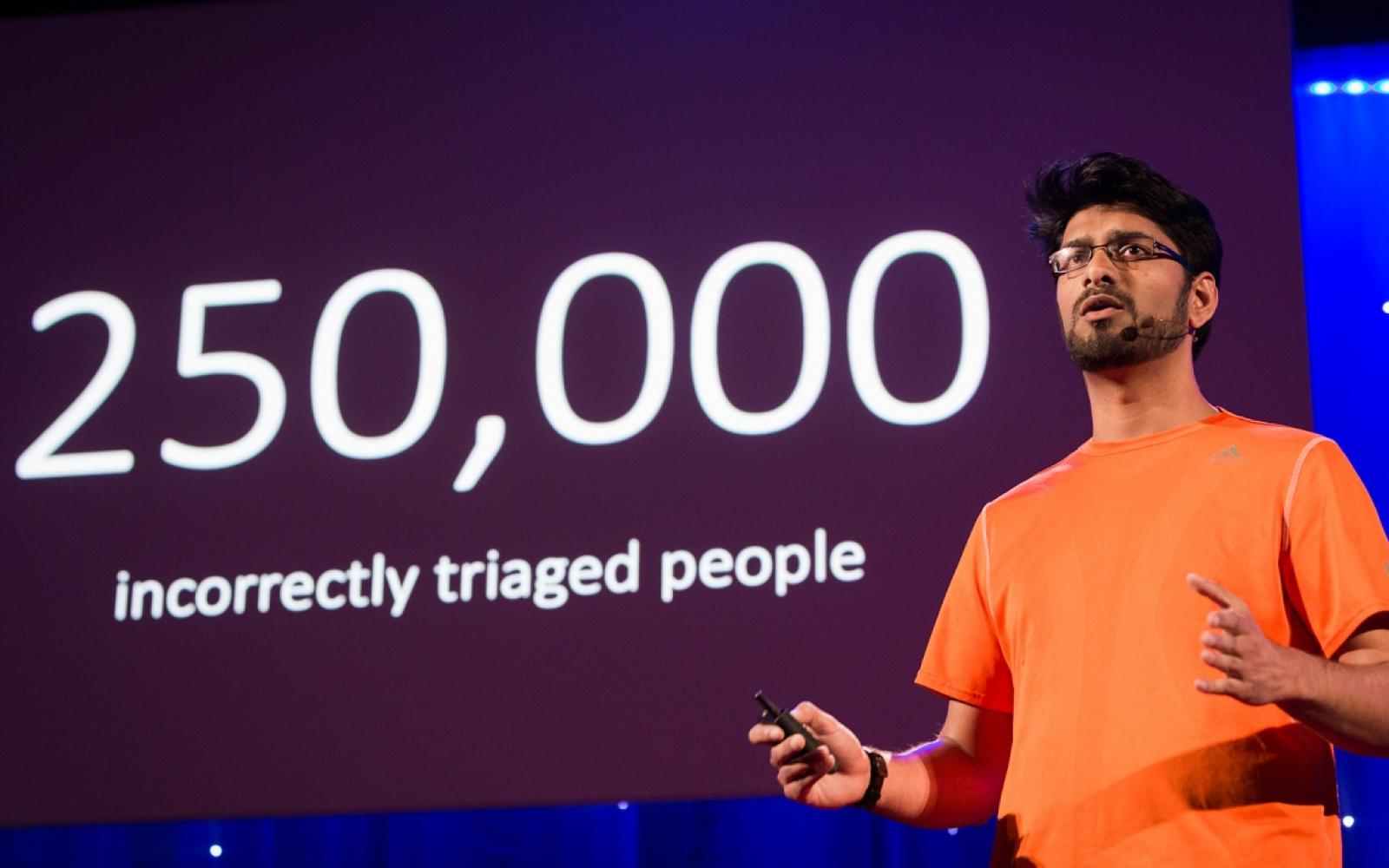
How EMGuidance is Saving Lives in South Africa
"As a rural doctor, many times you find yourself without help, and a lot of times you feel very alone and scared because you're making decisions that ultimately could result in the loss of a life. That feeling of being alone and unsure isn't spoken about a lot in medicine. We're making sure that other doctors don't need to go through what we went through." -- Dr. Mohammed Dalwai While working in Northern Pakistan as an emergency doctor with Doctors Without Borders, Mohammed Dalwai saw first-hand how crucial timing can be. At the end of a long shift at a remote hospital, he discovered an unattended patient in the emergency room. He rushed to her, but she was already dead. The cause was an injury that could have been treated had it been identified early and triaged correctly. This early experience had a lasting impact on Mohammed, bringing him to realize how vulnerable healthcare providers are to making mistakes that could be avoided with accurate information and treatment guidelines at hand. The healthcare system in Sub-Saharan Africa is similarly strained: 170 medical schools serve 47 countries, with an estimated deficit of 1.8 million health workers — a figure set to rise. In Mohammed's native South Africa, one in four patients is incorrectly triaged, and diagnosis errors cause approximately 160,000 premature deaths every year. "People were dying in waiting rooms. Triage was broken. We had to solve this problem," he shared. With Yaseen Khan, also a doctor, he co-founded two organizations working to address the problem. He was selected by the Philips Foundation and Ashoka to participate in the Accelerating Healthcare Access (AHA!) collaboration. AHA! connects social entrepreneurs to industry skills, resources, and networks to help them scale their innovations. Part of the support: a three-year stipend that helps entrepreneurs focus fully on their social change initiatives. Mohammed and Yaseen’s first initiative was The Open Medicine Project, a collaborative effort that brought together the expertise of healthcare professionals, mobile technology designers, and developers to tackle inefficiencies in prioritization during triage. They created a mobile application based on the South African Triage Scale, which asks standard questions, calculates a score as vital signs are added, and lists additional investigations needed to maximize patient outcomes. According to Mohammed, the mobile tool decreased triage error by 88 percent in under-resourced emergency rooms in South Africa. In 2014, The Open Medicine Project began partnering with a range of institutions worldwide to create open-access tools that would enable healthcare professionals to provide immediate, accurate care to the patients. They built six applications, each tailored to a different disease area such as tuberculosis, HIV, and Ebola, used by 50,000 African healthcare professionals. For two years, The Open Medicine Project continued developing these applications, but the staff came to a turning point when they understood that the system was fractured between too many platforms and therefore unable to fully scale its impact in the democratized and transparent way desired. In 2016, Mohammed and Yaseen decided to combine all applications and partners into Essential Medical Guidance (EMGuidance), South Africa’s first free comprehensive online and downloadable database of medicine information and healthcare practices. It includes drug dosages and location-specific treatment guidelines, with creative yet safe workarounds fitting each area’s resource availability. Now the EMGuidance team engages universities, health societies, and national and provincial health departments, encouraging them to publish their guidelines and protocols on the platform. Due to word of mouth, more than 100 new healthcare professionals join per week. EMGuidance secures funds largely by providing pharmaceutical companies the opportunity to sponsor value-driven content about their products in a clear and transparent way, including instructions for patients to administer their own medication, research and data they want to share, and announcements of conferences and events aimed at healthcare professionals. While the current goal for 2019 is for EMGuidance to be the most widely-used medicine resource across South Africa, they have also received interest from and started building partnerships with the Ministries of Health in Sierra Leone and Tanzania. Looking ahead, Mohammed and the EMGuidance team plan to use insights gained from their data to enhance medicine efficiency, cost effectiveness, and safety, besides helping healthcare professionals educate and advise patients about new medicines. In addition, they are looking at expanding their scope to include medical machinery and devices.